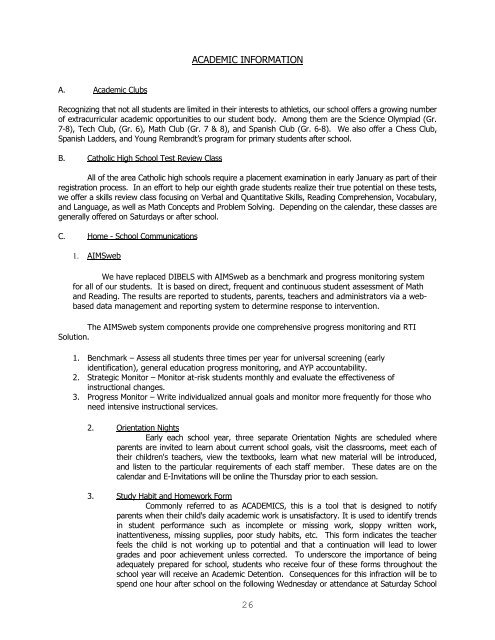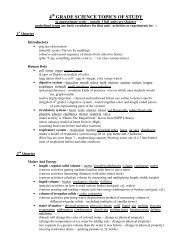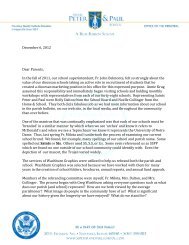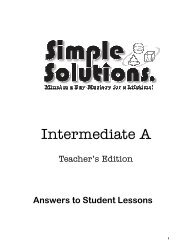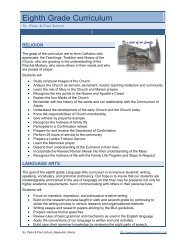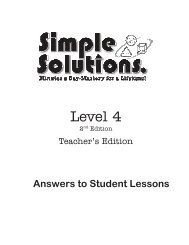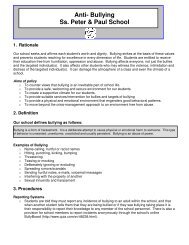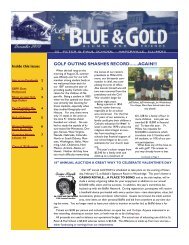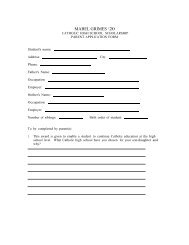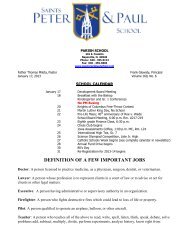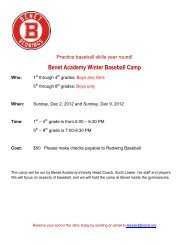Handbook - Parent/Student - Ss. Peter & Paul School
Handbook - Parent/Student - Ss. Peter & Paul School
Handbook - Parent/Student - Ss. Peter & Paul School
You also want an ePaper? Increase the reach of your titles
YUMPU automatically turns print PDFs into web optimized ePapers that Google loves.
ACADEMIC INFORMATIONA. Academic ClubsRecognizing that not all students are limited in their interests to athletics, our school offers a growing numberof extracurricular academic opportunities to our student body. Among them are the Science Olympiad (Gr.7-8), Tech Club, (Gr. 6), Math Club (Gr. 7 & 8), and Spanish Club (Gr. 6-8). We also offer a Chess Club,Spanish Ladders, and Young Rembrandt’s program for primary students after school.B. Catholic High <strong>School</strong> Test Review ClassAll of the area Catholic high schools require a placement examination in early January as part of theirregistration process. In an effort to help our eighth grade students realize their true potential on these tests,we offer a skills review class focusing on Verbal and Quantitative Skills, Reading Comprehension, Vocabulary,and Language, as well as Math Concepts and Problem Solving. Depending on the calendar, these classes aregenerally offered on Saturdays or after school.C. Home - <strong>School</strong> Communications1. AIMSwebWe have replaced DIBELS with AIMSweb as a benchmark and progress monitoring systemfor all of our students. It is based on direct, frequent and continuous student assessment of Mathand Reading. The results are reported to students, parents, teachers and administrators via a webbaseddata management and reporting system to determine response to intervention.The AIMSweb system components provide one comprehensive progress monitoring and RTISolution.1. Benchmark – Assess all students three times per year for universal screening (earlyidentification), general education progress monitoring, and AYP accountability.2. Strategic Monitor – Monitor at-risk students monthly and evaluate the effectiveness ofinstructional changes.3. Progress Monitor – Write individualized annual goals and monitor more frequently for those whoneed intensive instructional services.2. Orientation NightsEarly each school year, three separate Orientation Nights are scheduled whereparents are invited to learn about current school goals, visit the classrooms, meet each oftheir children's teachers, view the textbooks, learn what new material will be introduced,and listen to the particular requirements of each staff member. These dates are on thecalendar and E-Invitations will be online the Thursday prior to each session.3. Study Habit and Homework FormCommonly referred to as ACADEMICS, this is a tool that is designed to notifyparents when their child's daily academic work is unsatisfactory. It is used to identify trendsin student performance such as incomplete or missing work, sloppy written work,inattentiveness, missing supplies, poor study habits, etc. This form indicates the teacherfeels the child is not working up to potential and that a continuation will lead to lowergrades and poor achievement unless corrected. To underscore the importance of beingadequately prepared for school, students who receive four of these forms throughout theschool year will receive an Academic Detention. Consequences for this infraction will be tospend one hour after school on the following Wednesday or attendance at Saturday <strong>School</strong>26


